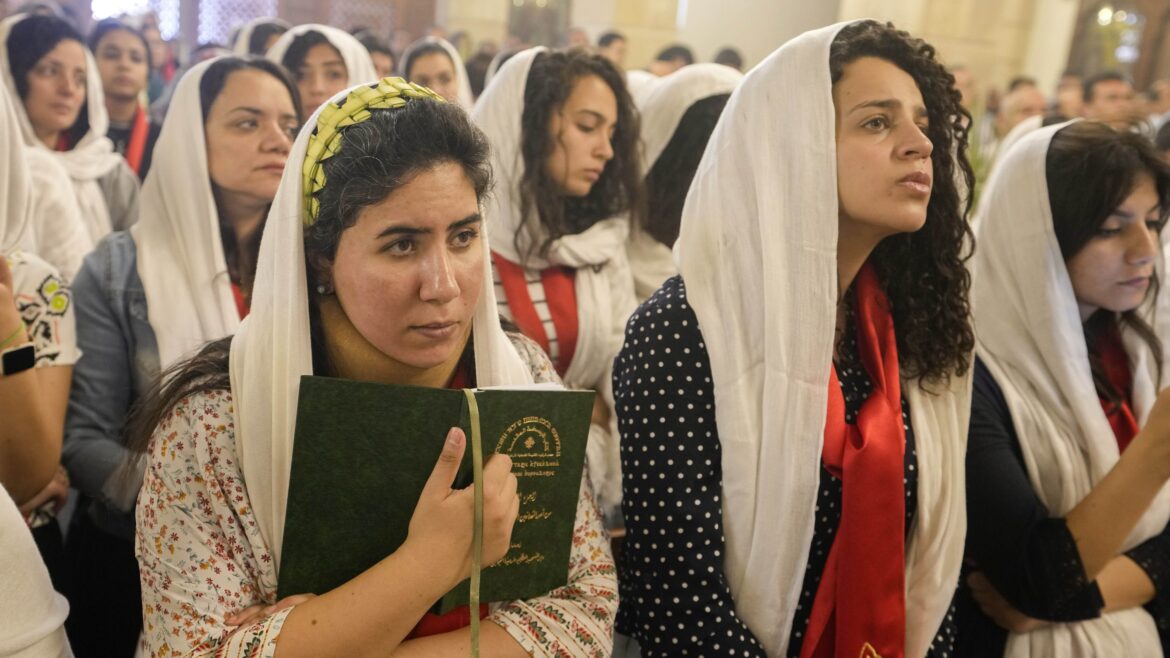In the Middle East, the historical roots of Christianity run deep, intertwining with the very fabric of the region’s culture. From the shores of the Mediterranean to the deserts of Arabia, Christian communities have emerged and evolved, facing numerous trials throughout the centuries. Today, these communities are confronted with unprecedented challenges, as they navigate an increasingly complex socio-political landscape. The survival struggles of Christians in this region are both profound and poignant, reflecting a tapestry of stories steeped in faith, resilience, and hope.
The contemporary Christian presence in the Middle East is beleaguered by threats stemming from sectarian strife, political instability, and economic hardship. Countries like Iraq, Syria, and Egypt have witnessed a dramatic decline in Christian populations due to violence and persecution. The brutal conflicts of recent years have not only displaced countless individuals but have also profoundly altered the demographic makeup of Christian communities. For instance, in Iraq, Christians constituted approximately 1.5 million individuals prior to the 2003 invasion. Today, estimates suggest their numbers have plummeted to around 300,000, a sobering reminder of the impact of war and terror.
Courageously, many Christians continue to practice their faith despite the threats they face. In cities such as Baghdad and Aleppo, closed churches stand as solemn monuments to the trials endured by believers. Yet amidst these tribulations, Christians find avenues for resilience. From clandestine gatherings in private homes to public worship in the few remaining open churches, believers maintain their spiritual fervor, often employing innovative methods to share their faith with others. This vibrant yet cautious expression of Christianity illustrates the tenacity that defines many Middle Eastern Christians today.
One of the most compelling aspects of the Christian narrative in the Middle East is the devotion observed during major religious observances. Events such as Easter and Christmas take on a special significance, often marked by a sense of urgency and hope for the future. The tenacity of Christians manifested during Easter celebrations in 2023 underscores the importance of hope in the face of adversity. In places where religious observance is fraught with danger, the rich traditions of these ancient communities offer a renewed sense of identity and belonging. The visual splendor of palm fronds and candlelight illuminates the resilience of faith, embodying a powerful counter-narrative to despair.
Furthermore, interfaith dialogue has emerged as a potentially transformative force in the region. As Christians engage with other faith traditions, there is an opportunity to build bridges across cultural divides. Initiatives that bring together Christians, Jews, and Muslims create a cradle of understanding, where shared values overshadow conflicting identities. These dialogues not only facilitate exchanges of ideas but also foster mutual support in advocacy for human rights, including the right to practice one’s faith freely.
The plight of Middle Eastern Christians often garners attention, yet the stories behind the statistics are rich and complex. One can find accounts of families who, despite having lost everything, convey an unyielding spirit. These narratives reveal a blend of vulnerability and courage, as individuals navigate the dangers surrounding them. For many, faith is not merely a doctrine but a lifeline. The communal bonds forged through shared hardship contribute to their survival, underscoring the power of solidarity in uncertain times.
The international community has a critical role in helping these communities preserve their heritage and continue their existence. Humanitarian aid programs, advocacy initiatives, and support for local churches can make a significant difference. Various organizations engage in missions that seek to bolster educational opportunities and provide economic assistance. Such efforts are vital not only in alleviating immediate needs but also in ensuring the long-term viability of Christian communities across the region. The active involvement of the global Church can serve as a beacon of hope, amplifying the voices of those who are often marginalized.
Despite the dire circumstances, the spirit of Christianity in the Middle East is characterized by an enduring belief in resurrection—both in the spiritual and social sense. The narratives of survival, resistance, and revival echo powerfully, inspiring not only fellow Christians but humanity at large. Each story serves as a testament to the unrelenting pursuit of peace and justice in a world fraught with turmoil. From the joy of communal gatherings to the solemnity of moments of remembrance, these experiences capture the diverse facets of faith in a context that demands resilience.
The survival struggles faced by Christians in the Middle East highlight broader themes of suffering, faith, and hope that resonate universally. Amidst the tribulations, the stories of these communities persist, marked by a rich heritage and a steadfast commitment to their beliefs. As the world watches, it is imperative to support and uplift the voices of Middle Eastern Christians, allowing their narratives to illuminate the path forward. In this age of uncertainty, their determination to proclaim their faith and thrive amidst adversity can ignite a flame of hope for generations to come.



